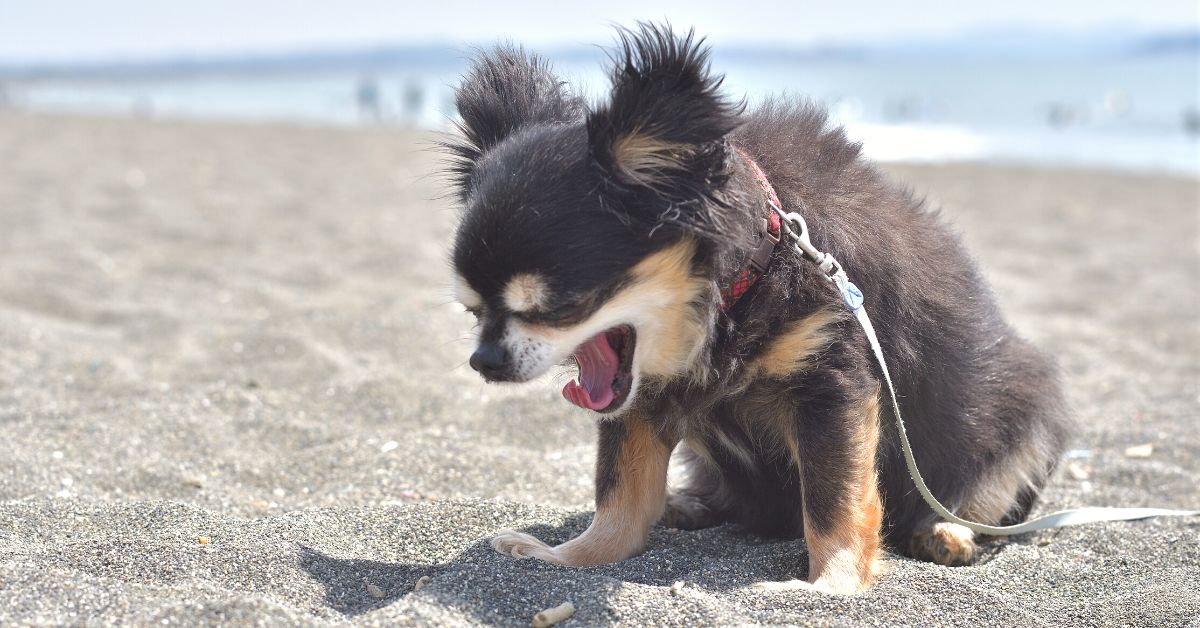
Why Do Dogs Reverse Sneeze?
You’re going about your day when all of a sudden your dog comes to an abrupt stop and begins making a loud snorting sound, along with wheezing and honking. The attack is alarming and lasts anywhere between a few seconds to a couple of minutes.
And then just like that, your pup is back to normal. What just happened?
You may have just witnessed a reverse sneezing episode from your dog.
What Is Reverse Sneezing in Dogs?
Reverse sneezing is clinically known as inspiratory paroxysmal respiration. While it’s often harmless, persistent episodes should be evaluated by a veterinarian to rule out potential problems.
We’re all familiar with how a regular sneeze works, where air is quickly and forcefully expelled through the nose. But with paroxysmal respiration, your dog rapidly pulls air into their nose, causing a loud snorting sound.
When your dog reverse sneezes, they will stand still, stiffen their body, extend their head and neck, and expand their chest as they try to inhale. All of this is accompanied by wheezing and loud snorting.
Unfortunately, the episodes can be scary and sound like your fur friend is in distress and has something caught in their nose and throat.
What Causes a Dog to Reverse Sneeze?
Of all the barks, pants, yips, whines, and growls that come out of our dogs, the sounds of reverse sneezing are probably the most disturbing.
Thankfully, reverse sneezing isn’t painful or harmful to your pup. But that leaves the question: why do our pups reverse sneeze?
Although the exact cause isn’t known, reverse sneezing in dogs occurs when your pup’s soft palate (the soft part of the mouth that separates the nasal passage from the oral cavity) is irritated. The irritation on the soft palate will cause a muscle spasm, and for a few moments, your dog’s trachea becomes narrower, making it difficult for them to inhale.
While a reverse sneezing episode can happen to any dog, some breeds are more susceptible than others.
Brachycephalic breeds, or dogs with shortened snouts, such as pugs, shih tzus, and bulldogs, have elongated soft palates. Occasionally, they can suck the elongated soft palate into their throat, causing reverse sneezing.
Dogs with narrow nasal passages (long noses) also tend to be commonly affected and smaller dog breeds may be prone to reverse sneezing because they have smaller, more delicate throats. This makes them particularly susceptible to tracheal collapse – a condition where the tracheal rings weaken and the airway narrows, making breathing difficult. This can be exacerbated by the pressure exerted on the neck by a collar, especially if the dog pulls or is pulled suddenly.
In general, any of the following allergens and environmental irritants can trigger reverse sneezing in dogs:
- Nasal mites
- Smoke
- Seeds, grass, and pollen
- Dust
- Foreign bodies
A dog reverse sneezes when they get overly excited or from vigorous exercise, such as pulling too hard on their daily walks.
Zuzu, a member of the Pet Living family, began to reverse sneeze after receiving a Bordetella vaccine (a.k.a. kennel cough vaccine).
Zuzu began reverse sneezing after receiving a Bordetella vaccine. This effect is typically short-lived.
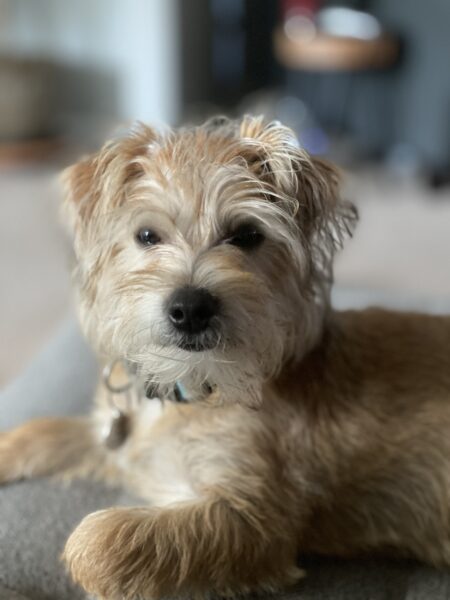
A quick call to the vet was all that was needed to reassure her mom that a dog reverse sneezes as a temporary side effect from the vaccine, which was administered as an inhalant.
While it’s rare, some dogs may experience mild respiratory reactions like reverse sneezing after certain vaccinations, including Bordetella. However, these are typically short-lived and not common.
How Long Do Episodes of Reverse Sneezing Last?
Your dog’s reverse sneezing usually lasts less than a minute. Most dogs may have two episodes of reverse sneezing in a day. If he has episodes more than twice a day, visiting your veterinarian would be a good call.
Is Reverse Sneezing Harmful for Dogs?
Reverse sneezing in dogs has no harmful effects. More than likely, your pup will go back to being their normal self after an episode has passed.
However, if your dog suddenly developed reverse sneezing, it’s likely a good idea to consult your veterinarian. They can give expert insights and suggestions on paroxysmal respiration. They’ll ask if your pup has had any exposure to respiratory irritants or seasonal allergens or has swallowed foreign items. If you’re able to capture a video of the episode, showing it to the vet can be invaluable! After all, knowing our furry friends, they might choose not to repeat the act while at the clinic.
A trip to the vet can also help rule out any underlying health problem, like an upper respiratory tract infection, asthma, heart disease, tracheal collapse, inflammation, nasal tumors or polyps, or kennel cough.
Kennel cough is a highly contagious bacterial infection that commonly spreads through animal shelters or from shared water bowls at dog parks.
If you’ve recently adopted a shelter dog, keep an eye out for reverse sneezing to make sure your dog hasn’t contracted this serious infection or any other upper respiratory infection. The “hacking” cough associated with kennel cough can easily be mistaken for “coughing” sounds associated with reverse sneezing.
How Vets Diagnose Reverse Sneezing
As mentioned, your veterinarian can do a complete examination to confirm what’s ailing your pup. They will then perform a physical exam to check your dog’s lungs and heart and look for other respiratory signs like nasal discharge or an increased respiratory rate or effort. For a baseline evaluation, they may do some allergy tests and will need your pup’s complete blood count, serum blood chemistry, and a urinalysis.
If your dog is displaying any of these additional symptoms, go ahead and call your vet right away. Your pup may be ailing from more serious upper respiratory infections or other diseases.
- Abnormal breathing or having trouble breathing
- Persistent cough
- Frequent wheezing
- Panting without exercise or lack of interest in exercise
- Open-mouthed breathing
- Lethargy
- Pale or blue gums
If your veterinarian gives your dog a clean bill of health, there are a few steps you can take to help your pup’s reverse sneezing.
How to Stop Reverse Sneezing in Dogs
Thankfully, most cases of reverse sneezing in dogs require no medical intervention. The next time they reverse sneeze, stay calm. Your positive disposition will help your dog’s own anxiety.
Then, try gently massaging your pet’s throat to encourage swallowing and to keep them calm. This can sometimes help stop the episode.
Distracting your pup with their favorite toy can also keep them from becoming overly excited by the episode.
You can also try speaking to your dog in a calm, soothing voice. The loving reassurances from their favorite human can help ease any anxiety associated with their reverse sneezing.
Plus, it’ll strengthen the bond between you and your dog.





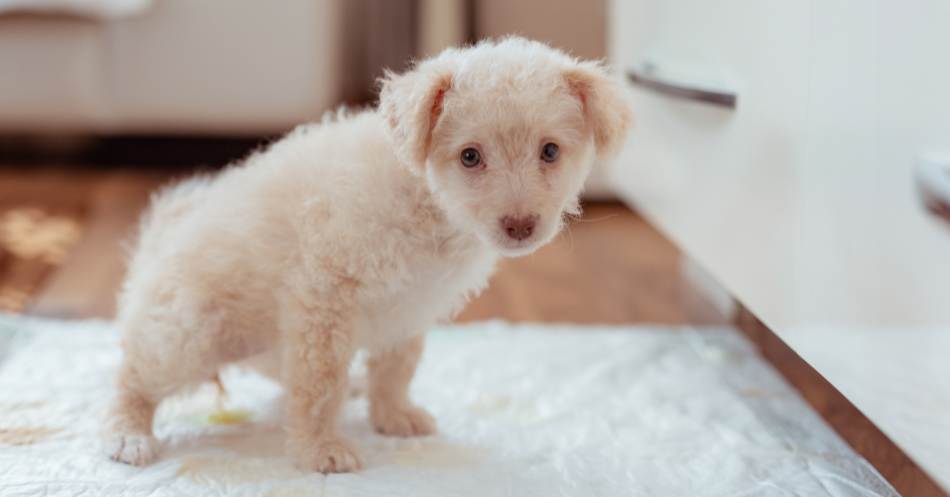
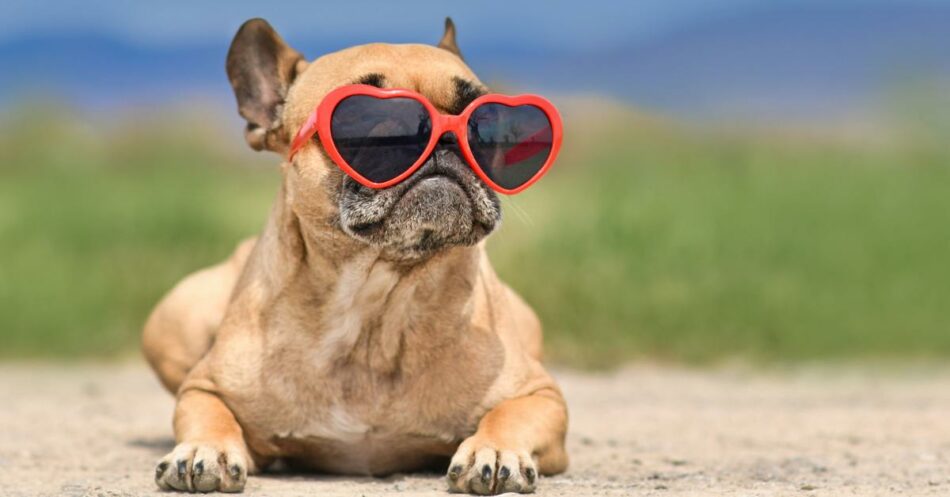

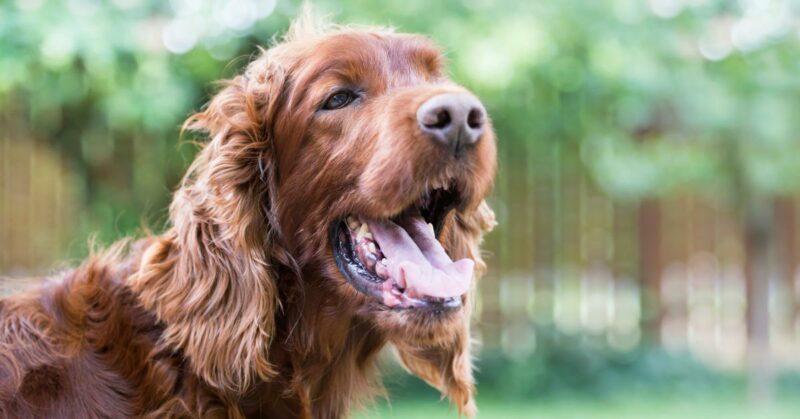
Comments (0)